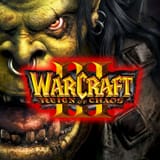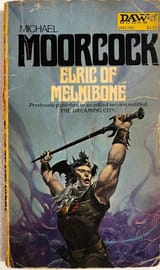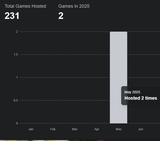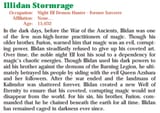>>715059530yes it does matter.
We have two relatable hero characters named Tyrande and Furion arguing on screen.
There are very angsty scenes of conflict and they face a very difficult choice.
We're asked to partake in their anguish, to undertsand their turmoil.
These characters are both good, they're both heroes, they're both intelligent and compassionate.
They have to make a terrible choice.
And we lack the fundamental element to understand any of their reasoning.
You've never seen a "Malfurion was wrong" or a "Tyrande was wrong" or a "Maiev was wrong" thread because nobody can argue for that.
Nobody can argue against that.
Nobody fucking knows what the whole conflict of that entire campaign is really about.
Nobody is invested in that narrative, nobody understands its foundation, nobody understands the level of grief, or weight it is supposed to have.
Illidan looks at the camera and says "I spent ten thousand years in the dark, I lost my eyes... for what??? Was it worth it Maiev??!?"
And the player is asked to reflect on that. Was it fair? Is he rightfully angry? Is he being a spoiled brat?
Nobody knows.
Did he cross silly boundaries of a meaningless law?
Did he commit genocide?
Did he save the world?
Did he doom the world?
Did he cross some tyrannical night elf judge?
We NEED to know if we are to emotionally partake in the storytelling.
This is not a detail in the background, it's behind every line of dialogue of Illidan, of Maiev and half the dialogue of Malfurion and Tyrande, being the reason for them splitting, being the reason for Malfurion's rivalry.
Remember that chapter where Malfurion and Illidan have to work together?
The tense moment when Malfurion decides that yes, for just one day he can forgive what Illidan has done? One more painful choice.
How is this a background detail?

















